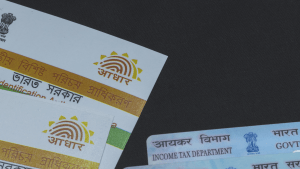Bosnia and Herzegovina’s e-Identity initiative, led by the Agency for Identification Documents, Registers and Data Exchange (IDDEEA), is making significant strides towards positioning the country as a leader in digital identity in Europe. This initiative directly supports several United Nations Sustainable Development Goals (UN SDGs), including Goal 9 (Industry, Innovation, and Infrastructure), Goal 16 (Peace, Justice, and Strong Institutions), and Goal 17 (Partnerships for the Goals). It aligns with key sections of the European Union’s digital strategy, particularly the Digital Single Market strategy and the eIDAS Regulation, while addressing EU priorities for Bosnia and Herzegovina’s integration and synchronization with EU standards.
IDDEEA’s comprehensive approach empowers citizens with cutting-edge digital solutions, ensuring they can interact with government services effortlessly. This digital leap represents a significant step towards digital inclusion, bridging the gap between Bosnia and Herzegovina and the European Union’s digital agenda.
Phase 1: Introducing the Qualified Digital Signature
IDDEEA is responsible for digital signing in the field of identification documents, specifically in charge of electronic certificates and electronic signatures related to identification documents, in accordance with the law regulating electronic signatures. One of the longstanding challenges was addressing whether to develop e-services without electronic signatures or wait until such signatures were viable. IDDEEA resolved this by introducing the qualified digital signature through the BiH e-Identity program. This foundational step ensures secure and legally binding digital interactions, paving the way for a robust e-identity ecosystem.
Phase 2: Developing Electronic Services
With a secure digital signature infrastructure in place, it’s now the turn of various public and private entities to develop comprehensive electronic services. This phase encourages banks, municipalities, telecoms, and other legal entities to integrate electronic services into their operations, leveraging the secure digital signatures established in phase one.
Phase 3: Educating and Motivating Citizens
The final phase focuses on educating and motivating citizens to use the newly developed electronic services. Through targeted educational campaigns and user motivation strategies, IDDEEA aims to ensure widespread adoption and effective utilization of e-services employing electronic signatures, ultimately transforming the way citizens interact with public services.
Benefits for Citizens
The e-Identity initiative brings numerous tangible benefits to citizens:
- Ease of Access: Citizens can now easily verify fines and track the status of personal documents online, marking a significant leap towards more accessible public information.
- Increased Transparency: Enhancements in transparency reduce administrative burdens and improve service delivery.
- Efficiency: Citizens can manage various bureaucratic tasks online, eliminating the need for physical queues and in-person visits.
- Cost Savings: Digital services drive significant cost efficiencies for both citizens and public administration.
Significance for Bosnia and Herzegovina
The e-Identity initiative is extraordinarily significant for Bosnia and Herzegovina, propelling the country among the leaders in digital identity in Europe. This achievement not only underscores Bosnia and Herzegovina’s commitment to digital transformation but also highlights its ability to innovate and align with EU standards and objectives. The initiative reflects the country’s drive to modernize, streamline public services, and enhance the efficiency of government operations.
International Leadership
By implementing the e-Identity initiative, Bosnia and Herzegovina joins the ranks of Europe’s digital pioneers. The comprehensive integration of digital solutions into public administration sets a new standard in the region, showcasing how strategic investments and coordinated efforts can lead to pioneering advancements in digital governance.
Key Factors for Success
Several key factors contribute to the success of IDDEEA’s e-Identity project:
- Continuous Investment in Digital Infrastructure: Ongoing investments ensure robust and resilient digital frameworks.
- Innovation in Public and Private Sectors: Both sectors have shown relentless pursuit of innovation, driving the initiative’s progress.
- Enhanced Capacity of Public Servants: Specialized training equips public servants with the knowledge and skills to harness digital technologies effectively.
Fostering Open Data and Collaboration
One of the highlights of this initiative is the Open Data Portal launched by IDDEEA. This portal serves as a treasure trove of statistical data, unlocking new possibilities for businesses, the media, and the general public. By fostering an open data culture, IDDEEA significantly contributes to better transparency and data-driven decision-making.
Streamlined Bureaucratic Processes
The e-Identity application and digital signatures streamline bureaucratic processes, setting new benchmarks for public administration. Enhanced efficiency in government operations and strengthened inter-agency cooperation are leading to a more cohesive and effective governance model.
In conclusion, the success of the e-Identity initiative in Bosnia and Herzegovina can be attributed to unwavering support for digital transformation from both the public and private sectors. It is not just about modernizing and streamlining public services; it is about integrating the ingenuity of technology into public service, creating a more inclusive and efficient digital governance model that benefits all citizens, businesses, and the government. This initiative positions Bosnia and Herzegovina as a forward-thinking digital leader in Europe, ready to meet future challenges with innovative solutions.

















